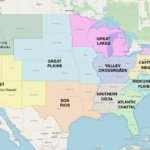
In the past, developing critical thinking was why people learned subjects like Latin. A heavy emphasis on structured thought patterns, like memorizing poetry, learning a musical instrument, or creative writing of essays, forms your mind to enable critical thinking. The mind stretches around such structures, allowing you to imagine and consider things outside of the rules and forms that you are learning.
Analytical thinking, on the other hand, describes patterns of thought that draw conclusions from our study. Studying the scientific method is one way in which analytical thinking has traditionally been taught. Other examples include planting a garden, caring for or training animals, and (oddly enough) playing video games. These practical applications of lessons learned from critical thinking reflect our ability to translate abstract knowledge into everyday life.
While the path to learning both analytical and critical thinking skills should start in school and at home, some people may not have had those advantages. Perhaps they didn’t learn well in a traditional environment, weren’t that interested, or didn’t have the opportunity to develop as they would have liked to at some point.
No matter what the past holds, each of us can work on our thinking skills in the present. Here are some questions, practices, and tools that you can use today to develop your thinking skills.




